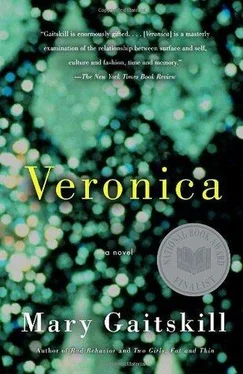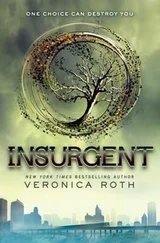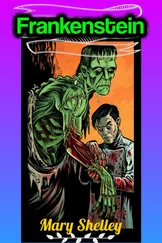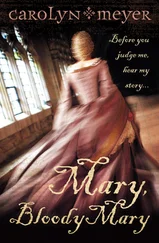Mary Gaitskill - Veronica
Здесь есть возможность читать онлайн «Mary Gaitskill - Veronica» весь текст электронной книги совершенно бесплатно (целиком полную версию без сокращений). В некоторых случаях можно слушать аудио, скачать через торрент в формате fb2 и присутствует краткое содержание. Год выпуска: 2006, Издательство: Vintage, Жанр: Современная проза, на английском языке. Описание произведения, (предисловие) а так же отзывы посетителей доступны на портале библиотеки ЛибКат.
- Название:Veronica
- Автор:
- Издательство:Vintage
- Жанр:
- Год:2006
- ISBN:нет данных
- Рейтинг книги:5 / 5. Голосов: 1
-
Избранное:Добавить в избранное
- Отзывы:
-
Ваша оценка:
- 100
- 1
- 2
- 3
- 4
- 5
Veronica: краткое содержание, описание и аннотация
Предлагаем к чтению аннотацию, описание, краткое содержание или предисловие (зависит от того, что написал сам автор книги «Veronica»). Если вы не нашли необходимую информацию о книге — напишите в комментариях, мы постараемся отыскать её.
Veronica — читать онлайн бесплатно полную книгу (весь текст) целиком
Ниже представлен текст книги, разбитый по страницам. Система сохранения места последней прочитанной страницы, позволяет с удобством читать онлайн бесплатно книгу «Veronica», без необходимости каждый раз заново искать на чём Вы остановились. Поставьте закладку, и сможете в любой момент перейти на страницу, на которой закончили чтение.
Интервал:
Закладка:
She and Duncan picnicked in Central Park late at night, she in a white lace dress, he in gray flannel pants and a straw boater. They packed their basket with smoked salmon, white bread, pâté, olives, grapes, and deviled eggs. They lounged in the black and shadowed grass, drinking wine from the bottle. La Bohème played on a cheap cassette deck with spools that creaked and strained. “Quando men vo soletta per la via,” sang Duncan, “la gente sosta e mira e la bellezza mia …” A gang of tough black kids drew near, then withdrew in bewilderment, one of them looking wide-eyed over his shoulder as he went. Duncan said, “Just a minute,” then got up and walked away. Veronica was left alone with love creaking and straining in the dark. An enormous cloud streamed across the sky, making the moon a radiant blur. It was beautiful, the voices coming out of the tiny machine to deepen a patch of night, a shimmering skin of eternal love cracked and strained, with mortality coming through. “Così l’effluvio del desìo tutta m’aggira, felice mi fa, felice mi fa!” Her heart beat. She was afraid. Some bushes stirred. Had Duncan gone to the wide-eyed boy? She sat up, heart pounding. But it was him, coming back to her — and with him were two ragged white children, a small boy and a smaller girl.
“Who were they?” I asked.
“They lived in the tunnels under the subways. They’d come up looking for food for their family. Duncan knew the boy somehow — not that way, he said.”
The boy stood whispering to Duncan. The girl squatted next to Veronica, blinking curiously. Her clothes, her face, her hair were coated in oily gray dirt. When Veronica called her “hon,” she bared her teeth, then smiled. Veronica wanted to take them to the police, but they shook their heads vehemently; the cops would take them from their parents, said the boy. Instead, they greedily ate the grapes and then the bread. Veronica wished they had cookies to give them; she wished she could comb the girl’s hair. Duncan asked about somebody named Ray; in a careful voice, the boy said he was sick. They put the rest of the food in the basket and gave it to the children. They watched them carry it into the dark, each holding the handle like a modern Hansel and Gretel, filthy, sick, and innocent.
“Who was Ray?” I asked.
“I don’t know. Another of Duncan’s boys, I assume. Excuse me, hon.” In a curve of light on the convex face of my screen, Veronica’s tiny reflection approached the supervisor’s tiny desk. The fun-house curve stretched her body pencil-thin, then mashed it, then pulled it grossly wide. I had a second of feeling — what was it? She came back, gross, mashed, elongated, then, stepping out of the curve, disappeared.
Another time, they went to the Museum of Modern Art, then returned to the park to ride the carousel, where stumbling security guards chased a shrieking homeless woman around the rising, falling ponies. They dined with an elegant old man, an author and lover of opera—“He once cared for Jean-Paul Belmondo’s dogs, exquisite chows”—who called them “Lord and Lady Bracknell.”
“To lose one’s girlfriend is perhaps careless,” said Lord Bracknell. “But to lose one’s boyfriend is incorrigible.”
“To lose one’s boyfriend is also impossible,” replied Lady Bracknell, “when one has so many.”
“Ah, but so many is the same as one, my love, and their one is nothing to your two.”
Lady Bracknell’s words were elegant in fragrant shapely smoke fresh from her throat. The red impress of her striated lower lip was perfect on her Styrofoam cup. The sugar sign beamed its red message across the river. Safety, it said. Stillness. Sweetness.
Lord Bracknell’s young lover arrived and there was a scene. He was a somewhat unclean but fetching boy with pocked skin and sullen, flashing eyes. He looked at Lady Bracknell and said, “Who’s the fish?” “Better fresh fish than rotten meat,” said she. “You don’t look so fresh to me,” he sniffed. “I’m still fresher than you smell, young man.” Lord Bracknell laughed like a hyena in a lace ruff and kissed his lady good-bye, first on her lips and then her hand. He was off into the night with his protégé. Veronica shared a cab home with the elegant and embarrassed old man. The little wooden doors had whirred shut on the little kissing figures.
I stop to wipe the sweat gathered at my eyebrows. My bad arm twinges as I crush it against my side, pinning the umbrella in place while I get the aspirin and water bottle from my bag. I imagine massed atoms of gray and green rising from the ground in a moving cloud, twinkling like motes of dust, except alive, complex, full of joy and perversity. Alain’s eyes — perhaps they were the human form of this. Perhaps Duncan was the human form of this in his entirety. I imagine myself blundering through a night haunt, amid plain people dressed so fantastically, they make my beauty trite — an enormous cloud streams across the room and there is Duncan, singing, “E tu che sai, che memori e ti struggi da me tanto rifuggi.” I go into a bathroom, where the thudding music is dulled, and there a tinny thread of La Bohème flashes and disappears amid voices and rushing water — back to the enchanted park where Veronica and Duncan picnicked with their children. Walking home one morning — cold white sky with a thin aura of liquid gold quivering on buildings and roaring trucks — I saw a prostitute haggling with a john. Mockingly, she shouted, “Hey, blondie!” There was Duncan kissing Veronica in the street, and I did not care about heaven.
I smiled and said, “Good morning!” with such warmth that the prostitute looked abashed.
“Have you ever thought of modeling, hon?”
“I already was a model.” I didn’t take my eyes off the word processor.
“Really? What kind? Catalog or—”
“Print. Runway. Paris.”
“And what are you doing here ?” she asked.
“I’m here because I got cheated out of all my money and made bad enemies.” I trembled inside to talk about it. My contempt rose up to steady my trembling. “It’s a horrible business,” I snapped. “I’d never do it again.”
There was a wondering silence. Veronica smoked with her lips in a sideways purse so she could stare at me as she inhaled; her eyes flared with each tiny facial twist.
“How did you get into modeling to begin with?”
“By fucking a nobody catalog agent who grabbed my crotch.”
I didn’t have to be embarrassed or make up something nice, because Veronica was nobody. My disdain was so habitual, I didn’t notice it. But she did. She said, “Every pretty girl has a story like that, hon. I had that prettiness. I have those stories. I don’t have to do that anymore, though. It’s my show now.” And she turned into a movie star, strutting past me while I gawked.
It’s raining again. I am deep in the unfolding. All around me living green opens and closes, undulating in ripples and great waves. The creek flashes, eager for the piercing rain, its hard, concentrated pouring. A slim tree naked of bark, ocher, smooth, comes out of the ground in a sinuous twist. A piece of fungus grows in a neat half wheel around a twig, like a hat on a lady with a long neck. I think of Veronica. I speak aloud. “I don’t have to do that anymore. It’s nobody’s show now.”
“Well, hon, if I were you, I’d try again. This is New York, not Paris.” She lighted another cigarette. “But this time, don’t let anybody grab your crotch.” And she smiled.

One evening when I was walking in the East Village with Candy, we came on a party that had spilled out of an apartment building; people stood on the sidewalk, drinking from plastic cups, or lounged on the hoods of cars, like the girl in black laughing at the boy who tried to kiss the bottom of her silver shoe. Music fell out windows, splattered on the ground, got up, and walked away. Candy recognized somebody; he invited us into a tiled hallway (blue, gold, and ruined white) and up a linoleum stair to a large apartment sagging on its moldings and vibrating with many feet. Because I had to work that night, I drank orange juice straight and wandered through the party, bored by but still accepting the expression that rose on every face as I went past. “Beautiful.” “Beautiful!” “Bee-oot-ee-fool.” The expression might be formed with wonder or contempt or warmth or disinterest, but it was still the same coin I mechanically took and tossed on the pile. Half-looking for something else, I walked past a partially open door and saw a well-dressed boy sitting on a bed, gazing at the party with a look of intent, distant amusement. He held a worn toy dog on his lap, which he stroked as if it were a pet. There was something mocking in the gesture, as if it were meant to subtly ridicule anyone who saw it. When he saw me, his expression offered me the coin, but so casually that it fell on the floor before I could take it. He was very handsome himself. “Hello,” he said, holding the toy dog up to his face. “Would you like to meet Skipper?”
Читать дальшеИнтервал:
Закладка:
Похожие книги на «Veronica»
Представляем Вашему вниманию похожие книги на «Veronica» списком для выбора. Мы отобрали схожую по названию и смыслу литературу в надежде предоставить читателям больше вариантов отыскать новые, интересные, ещё непрочитанные произведения.
Обсуждение, отзывы о книге «Veronica» и просто собственные мнения читателей. Оставьте ваши комментарии, напишите, что Вы думаете о произведении, его смысле или главных героях. Укажите что конкретно понравилось, а что нет, и почему Вы так считаете.












